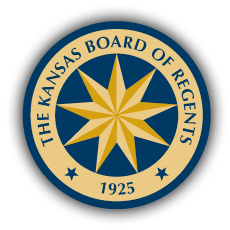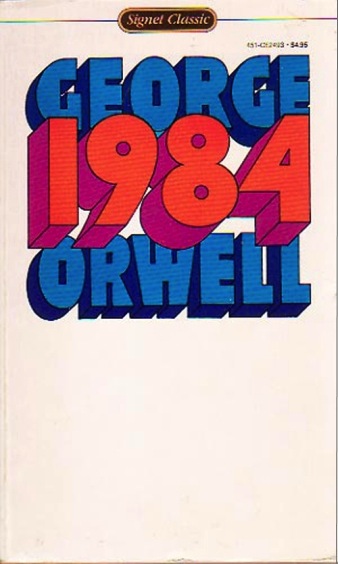 When the Kansas Board of Regents announced its new social media policy on December 18, I thought it must have made a mistake. After all, this Board of Regents had seemed an ally of higher education in Kansas. Unlike previous Boards, this one had – for instance – been asking the Kansas Legislature to fund the state universities in Kansas. Adopting a social media policy that suspended freedom of speech and (in effect) eradicated tenure was surely because the hastily passed proposal was ill-considered. So, I thought: if we let the Board of Regents know how damaging the policy is, then they’ll realize that they’ve made a mistake, withdraw the policy, and start over.
When the Kansas Board of Regents announced its new social media policy on December 18, I thought it must have made a mistake. After all, this Board of Regents had seemed an ally of higher education in Kansas. Unlike previous Boards, this one had – for instance – been asking the Kansas Legislature to fund the state universities in Kansas. Adopting a social media policy that suspended freedom of speech and (in effect) eradicated tenure was surely because the hastily passed proposal was ill-considered. So, I thought: if we let the Board of Regents know how damaging the policy is, then they’ll realize that they’ve made a mistake, withdraw the policy, and start over.
I was wrong.
As emails and subsequent statements to the media have revealed, the Board of Regents crafted the most repressive policy that (it thought) would withstand a legal challenge. Working with State Attorney General Derek Schmidt, the Board created the policy using specific language from United States Supreme Court cases. Then, at its December meeting and over the objections of university faculty and administration present, the Board unanimously passed the new policy.
The policy is not a mistake, but a carefully executed plan to muzzle free speech. This is why the Board passed the policy as faculty and staff were grading exams and preparing to leave town (indeed, many had already left town). This is why, though the policy has been panned with near unanimity from both within and beyond Kansas, the Board is not backing down.
As further evidence, one need look no further than board members’ statements about the plan. Their words are perfect examples of the “political language” that, as George Orwell wrote in “Politics and the English Language” (1946), “is designed to make lies sound truthful and murder respectable, and to give an appearance of solidity to pure wind.” In response to the recent letter signed by 81 distinguished professors from KU and KSU, Fred Logan, Chair of the Board of Regents, wrote, “I very respectfully disagree with your apparent assessment that faculty and staff at Kansas universities ‘no longer have freedom of speech, academic freedom . . . , nor tenure.’ I assure you that all three of those items are alive, robust and well.” His assertion that freedom of speech, academic freedom and tenure “are alive, robust and well” collides with a policy that says faculty and staff can be fired for saying anything “contrary to the best interest of the university” or anything that “impairs discipline by superiors or harmony among co-workers” – a definition so broad and vague as to encompass any speech. Mr. Logan’s statement and the social media policy cannot both be true. Given that he is using his “freedom of speech is alive, robust and well” statement to defend a policy that rescinds freedom of speech, his words are a superb example of language designed to – in Orwell’s words – “give an appearance of solidity to pure wind.”
Another word for this sort of speech is doublespeak. Yet another word is lie.
Here’s another example. Mr. Logan recently asserted, “The board unanimously approved this policy and did so in good faith,” despite the fact that it approved the policy over the objections of faculty and administration present at the very meeting. As KSU Faculty Senate President Julia Keen (who was present at the meeting) noted on 21 December,
The creation of this policy was done with no input from university faculty or administrators; it was put near the end of an 84-page agenda without notification or announcement. The Council of Faculty Senate Presidents made a statement at the KBOR meeting on Wednesday, December 18, voicing our concerns about both the content and the timing of the policy change. We asked that the vote be delayed to a future KBOR meeting to allow for faculty input. The KBOR chose to proceed with a unanimous vote to pass the policy language.
And yet Mr. Logan says that the Board approved the policy “in good faith.” Either his definition of “good faith” is so rare as to have eluded the dictionary-makers, or he is again lying. Based on the available evidence, he appears to be delivering another lie. It’s a very polite lie, but it’s a lie nonetheless.
By failing to act in good faith and dressing its policy in doublespeak, the Kansas Board of Regents no longer deserves the confidence of those it serves. Since the Board itself is not an elected body, I doubt that a vote of no confidence would be persuasive. If the Board is so convinced that its draconian policy is correct that it’s willing to lie about it, then why would it care about a vote of no confidence?

I hope I’m wrong. I hope the Board of Regents resumes doing its job, which (according to its mission statement) is to “advocate powerfully” for “continuous improvement in the quality and effectiveness of the public postsecondary educational system in Kansas.” Based on its responses thus far, I think it more likely that its next statement to the state universities will be more along the lines of “freedom is slavery.” Or, given how much freedom of speech seems to frighten the Regents, perhaps it will be “ignorance is strength.”

Jamie
Craig Svonkin
Vincentius Patricius
Dale
Michael Caddell
Barry Roberts Greer